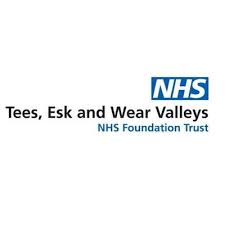Organisation of the week - North East Mental Health and Deafness Service


About North East Mental Health and Deafness Service
The Northeast Deaf mental health service is a partnership between Cumbria, Northumberland, Tyne and Wear NHS Foundation Trust and Tees, Esk and Wear Valleys NHS Foundation Trust, for Deaf and Deafblind people aged 18 years or older who mainly use BSL (British Sign Language) to communicate and who have mental health problems, for example depression or anxiety.
We provide deaf mental health awareness training for colleagues and support them to improve deaf people’s access to their services (in-person and online) and their compliance with the accessible information standard and reasonable adjustment requirements.
We understand that deaf people can experience distress and crisis and require round the clock support. They can contact the local mental health crisis and listening services What to do in a mental health crisis - Tees Esk and Wear Valley NHS Foundation Trust (tewv.nhs.uk) or access mental health advice via NHS 111 option2 using Signvideo NHS 111 - SignVideo : SignVideo or text Deaf shout 85258 . In emergency, they can contact 999 using Relay UK How to use Relay UK | Relay UK (bt.com) or Signvideo New Emergency 999 VRS Service - SignVideo : SignVideo


Address: Walkergate Park, Benfield Road, Newcastle upon Tyne, NE6 4QD
Email address: mhd@cntw.nhs.uk
Opening times: 9am – 5pm Monday to Friday
Age ranges for each service: We are an adult service for deaf people who are 18 years and above.
We are involved in transition planning for deaf young people who are 17 ½ years old and require input from adult service.
Referral pathways: We are a tertiary service and work with a community team together in your care. Your referral is usually made by your GP to the community team and subsequently forwarded to us. We gather information about your communication and language and other needs to help you feel involved and included. They are called reasonable adjustment and accessibility requirements. We then book your preferred communication support/interpreter and meet you to discuss your problems, past and now. This is the assessment. The assessment aims to help you understand your mental health and our strengths and any barriers and decide what would help you now. This may include medication and personal support. We will develop your communication passport together to promote your choice and control. We talk to your family (if you want us to) and agree on what to do next. If you need treatment, we decide together what to do. This is called the Care Plan. You will be given a copy. This can be in English or BSL. Your care plan is reviewed regularly. We write to your GP and let them know the plan and inform your key worker (we call them a care coordinator or lead professional) in your community team. We will work with you and your key worker to meet your needs.

